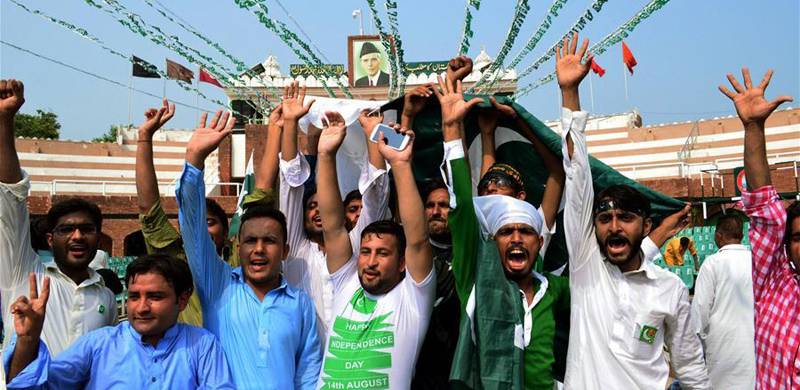
We as a nation have long been fed lies about our history and politics, as a result of which a common Pakistani has tons of small and big misconceptions about various issues facing the country today. And thanks to the absence of the culture of debate, not many people question these long-held political and social beliefs. This lack of communication makes people believe false rhetoric about critical national issues peddled by various means – often as state propaganda. Here are the seven most common myths that Pakistanis have. It is about time we do away with them.
Corruption is a bigger problem than extremism
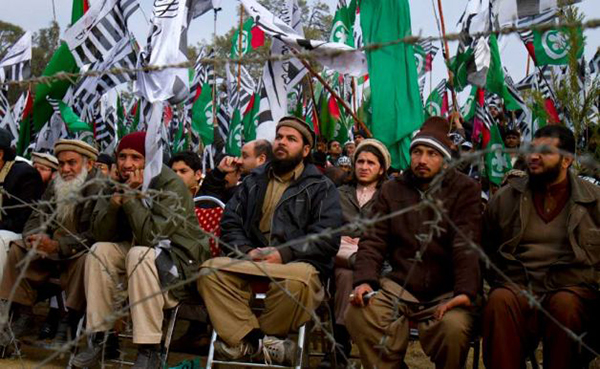
The so-called accountability drive that the country is witnessing today has so far targeted politicians only. But generals and judges seem to be above the law, because they are not being held accountable despite claims that the ongoing drive against corruption is ‘across the board’. Many analysts have warned that the cases against Nawaz Sharif and his family, and the noose tightening around PPP and Asif Ali Zardari, is selective accountability. Some have also termed it a witch-hunt.
The prime minister, however, backs the action against members of opposition for their alleged corruption. Even on several international forums (which are supposed to be a platform for furthering diplomatic ties), the PM has vowed to eradicate corruption in Pakistan. Unfortunately, the same vigilance is not shown when it comes to action against extremism and terrorism. Extremists are free to spew venom and incite violence without facing consequences. And most people do not seem to understand that extremism poses an existential threat to the country, and that it is a much bigger problem than corruption. While ordinary people on social media are often seen demanding capital punishment for corruption, extremists and terrorists are defended. This is a dangerous approach. Extremism needs to be dealt with an iron fist, and the gravity of the issue must be understood. Acting against corruption is important, but it needs to be stated clearly that extremism is a bigger issue than corruption. And those who think it’s not are part of the problem.
Anyone who criticises the armed forces is a foreign agent
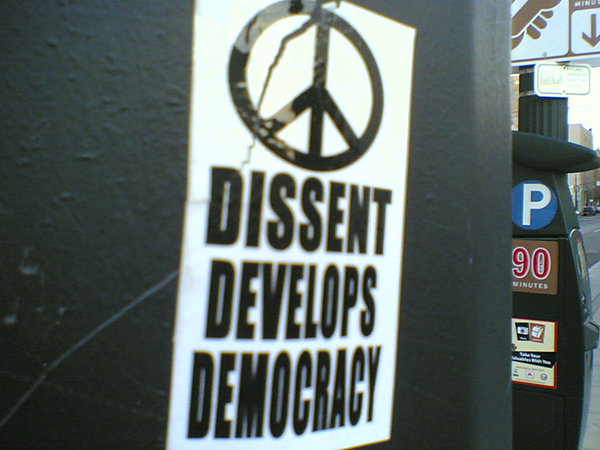
Every time journalists or analysts criticize the polices of the military, they are dubbed as foreign agents by troll armies on social media who accuse them of working for enemy countries. This intolerance towards difference of opinion is due to ignorance as well as state propaganda. Criticism of the military and establishment has long been curbed, and the practice justified in the name of national security.
This is why an average Pakistani is conditioned to believe that the armed forces are a holy cow who cannot and should not be questioned. Many well-meaning journalists and politicians have been on the receiving end of such severe accusations because of this general belief. The constitution of Pakistan does not bar criticism of the military, nor is it illegal. Freedom of speech is a cornerstone of democracy, without which we can’t morally claim to be a democratic country.
Dams are the only solution to water crisis
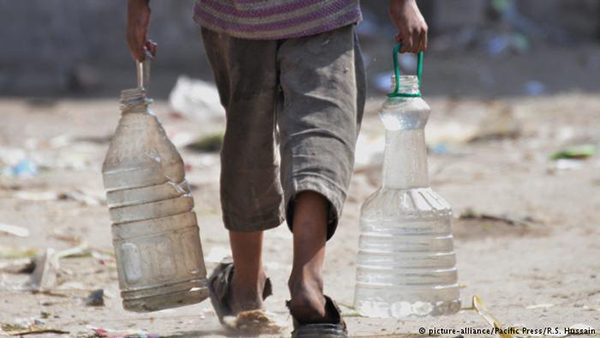
When Chief Justice Saqib Nisar initiated the crowd-funding drive to build Dimaer Bhasha and Mohmand Dams to deal with water crisis and stop Pakistan from ‘going dry’, several known personalities donated for the cause. Later, Prime Minister Imran Khan also announced his support to the fund, and the joint dam fund continues to receive donations. But experts have warned that crowd-funding is an unrealistic way to build dams, because the amount needed cannot be collected through donations.
There are two major issues with this popular ‘dam’ rhetoric advocated by the top judge and promoted by the mainstream media over the past few months. First, the amount needed to build these dams cannot be collected through crowd-funding. That’s the realistic way of looking at it. Secondly, building dams is not the only solution to the country’s water crisis, because there are many issues to be fixed before a dam is built. Without a proper coordination between provinces to share the benefits of hydropower, there is not much the new dams can do to solve the water issue.
But there has hardly been any debate on that front. So it is absurd to believe that the water crisis we face today will magically disappear when a dam is built.
Malala is bringing a bad name to Pakistan
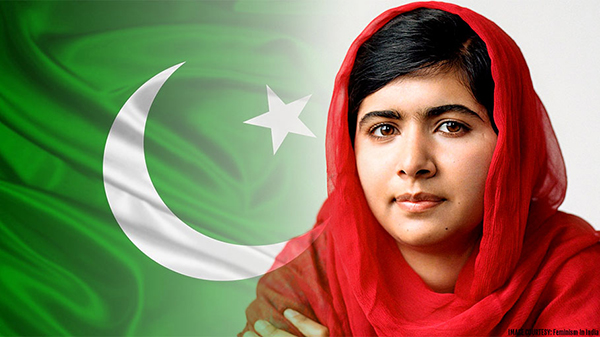
Mala Yousafzai, the champion of girls’ rights who was shot by Taliban for wanting to get an education, is honoured across the world, but sadly hated back home. Most young people despise Malala because according to them, her activism is bringing a bad name to the country. Some haters suggest she got herself shot to get out of the country. Others say she has been planted by the evil Westerners to malign Pakistan and Islam – the ‘yahoodi saazish’ narrative never gets old.
And the most widely-used argument is her comparison with the victims and survivors of the APS attack. In a bid to discredit Malala, APS victims are hailed as heroes for not leaving the country despite getting attacked. First, the innocent students of APS who came under attack on the fateful day did not choose to pick any fight. Their parents had not sent them to a battlefield, but to school. So to begin with, the glorification of ‘martyrdom’ and ‘sacrifice’ is an insult to the families of the victims. Malala, on the other hand, knew of the threats because she fought for her right to get an education while living under the shadow of the Taliban, which is a vastly different circumstance. Comparing two tragedies to belittle a young girl has to be the lowest of lows. Besides, for the uninitiated, Malala and her family have been taking care of one of the APS survivors Ahmed Nawaz, who is completing his education in the UK. Hatred does make you blind.
Moreover, the belief that Malala has ‘not done anything for Pakistan’ is also utterly false. In March last year, the Malala Fund opened a new girls’ school in Malala’s home town in the Swat valley, built with her Nobel money. Malala had donated 700,000 dollars for the purpose. But above all, she has inspired young Pakistani girls to fight for their rights and not give up no matter what the odds may be. The truth is that the girl has achieved more at a young age than these haters will in their entire lives.
Feminism is a Western concept
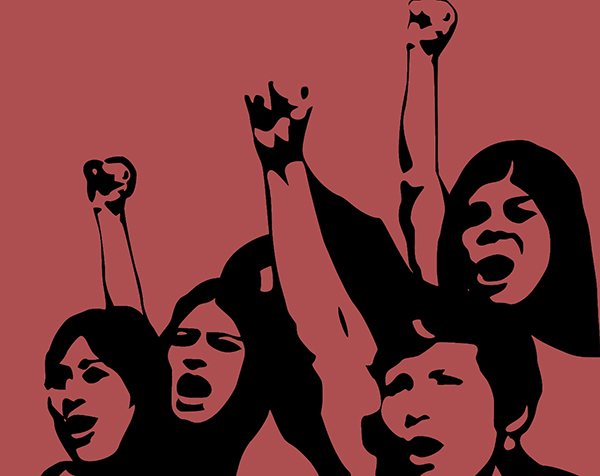
Feminism is one of the most misunderstood concepts in Pakistan. Feminists are considered men-haters and the idea is seen as a Western concept and a threat to our moral values. A few weeks before the 2018 general elections, Prime Minister Imran Khan had toed the same line. In an interview, he said that feminism is a ‘Western concept’ and has degraded motherhood. The PTI chief’s comment was ill-informed to say the least, because if he had done a little research, he would have found out that it was feminists who fought for the rights of employed mothers. It was because of feminism that women were given maternity leaves in Europe and across the world. Feminists also advocate equal pay for women and a seat at the table. This does not in any way ‘degrade’ motherhood, but empower women including mothers. Instead of misunderstanding the concept and revealing your ignorance, it’s best if some research is done on the subject before making a sweeping statement.
Patriarchy and toxic masculinity reign supreme in Pakistan. This is why, even in 2019, we have a long way to go before feminism is understood and accepted in the country.
Corruption is a bigger problem than extremism

The so-called accountability drive that the country is witnessing today has so far targeted politicians only. But generals and judges seem to be above the law, because they are not being held accountable despite claims that the ongoing drive against corruption is ‘across the board’. Many analysts have warned that the cases against Nawaz Sharif and his family, and the noose tightening around PPP and Asif Ali Zardari, is selective accountability. Some have also termed it a witch-hunt.
The prime minister, however, backs the action against members of opposition for their alleged corruption. Even on several international forums (which are supposed to be a platform for furthering diplomatic ties), the PM has vowed to eradicate corruption in Pakistan. Unfortunately, the same vigilance is not shown when it comes to action against extremism and terrorism. Extremists are free to spew venom and incite violence without facing consequences. And most people do not seem to understand that extremism poses an existential threat to the country, and that it is a much bigger problem than corruption. While ordinary people on social media are often seen demanding capital punishment for corruption, extremists and terrorists are defended. This is a dangerous approach. Extremism needs to be dealt with an iron fist, and the gravity of the issue must be understood. Acting against corruption is important, but it needs to be stated clearly that extremism is a bigger issue than corruption. And those who think it’s not are part of the problem.
Anyone who criticises the armed forces is a foreign agent

Every time journalists or analysts criticize the polices of the military, they are dubbed as foreign agents by troll armies on social media who accuse them of working for enemy countries. This intolerance towards difference of opinion is due to ignorance as well as state propaganda. Criticism of the military and establishment has long been curbed, and the practice justified in the name of national security.
This is why an average Pakistani is conditioned to believe that the armed forces are a holy cow who cannot and should not be questioned. Many well-meaning journalists and politicians have been on the receiving end of such severe accusations because of this general belief. The constitution of Pakistan does not bar criticism of the military, nor is it illegal. Freedom of speech is a cornerstone of democracy, without which we can’t morally claim to be a democratic country.
Dams are the only solution to water crisis

When Chief Justice Saqib Nisar initiated the crowd-funding drive to build Dimaer Bhasha and Mohmand Dams to deal with water crisis and stop Pakistan from ‘going dry’, several known personalities donated for the cause. Later, Prime Minister Imran Khan also announced his support to the fund, and the joint dam fund continues to receive donations. But experts have warned that crowd-funding is an unrealistic way to build dams, because the amount needed cannot be collected through donations.
There are two major issues with this popular ‘dam’ rhetoric advocated by the top judge and promoted by the mainstream media over the past few months. First, the amount needed to build these dams cannot be collected through crowd-funding. That’s the realistic way of looking at it. Secondly, building dams is not the only solution to the country’s water crisis, because there are many issues to be fixed before a dam is built. Without a proper coordination between provinces to share the benefits of hydropower, there is not much the new dams can do to solve the water issue.
But there has hardly been any debate on that front. So it is absurd to believe that the water crisis we face today will magically disappear when a dam is built.
Malala is bringing a bad name to Pakistan

Mala Yousafzai, the champion of girls’ rights who was shot by Taliban for wanting to get an education, is honoured across the world, but sadly hated back home. Most young people despise Malala because according to them, her activism is bringing a bad name to the country. Some haters suggest she got herself shot to get out of the country. Others say she has been planted by the evil Westerners to malign Pakistan and Islam – the ‘yahoodi saazish’ narrative never gets old.
And the most widely-used argument is her comparison with the victims and survivors of the APS attack. In a bid to discredit Malala, APS victims are hailed as heroes for not leaving the country despite getting attacked. First, the innocent students of APS who came under attack on the fateful day did not choose to pick any fight. Their parents had not sent them to a battlefield, but to school. So to begin with, the glorification of ‘martyrdom’ and ‘sacrifice’ is an insult to the families of the victims. Malala, on the other hand, knew of the threats because she fought for her right to get an education while living under the shadow of the Taliban, which is a vastly different circumstance. Comparing two tragedies to belittle a young girl has to be the lowest of lows. Besides, for the uninitiated, Malala and her family have been taking care of one of the APS survivors Ahmed Nawaz, who is completing his education in the UK. Hatred does make you blind.
Moreover, the belief that Malala has ‘not done anything for Pakistan’ is also utterly false. In March last year, the Malala Fund opened a new girls’ school in Malala’s home town in the Swat valley, built with her Nobel money. Malala had donated 700,000 dollars for the purpose. But above all, she has inspired young Pakistani girls to fight for their rights and not give up no matter what the odds may be. The truth is that the girl has achieved more at a young age than these haters will in their entire lives.
Feminism is a Western concept

Feminism is one of the most misunderstood concepts in Pakistan. Feminists are considered men-haters and the idea is seen as a Western concept and a threat to our moral values. A few weeks before the 2018 general elections, Prime Minister Imran Khan had toed the same line. In an interview, he said that feminism is a ‘Western concept’ and has degraded motherhood. The PTI chief’s comment was ill-informed to say the least, because if he had done a little research, he would have found out that it was feminists who fought for the rights of employed mothers. It was because of feminism that women were given maternity leaves in Europe and across the world. Feminists also advocate equal pay for women and a seat at the table. This does not in any way ‘degrade’ motherhood, but empower women including mothers. Instead of misunderstanding the concept and revealing your ignorance, it’s best if some research is done on the subject before making a sweeping statement.
Patriarchy and toxic masculinity reign supreme in Pakistan. This is why, even in 2019, we have a long way to go before feminism is understood and accepted in the country.
